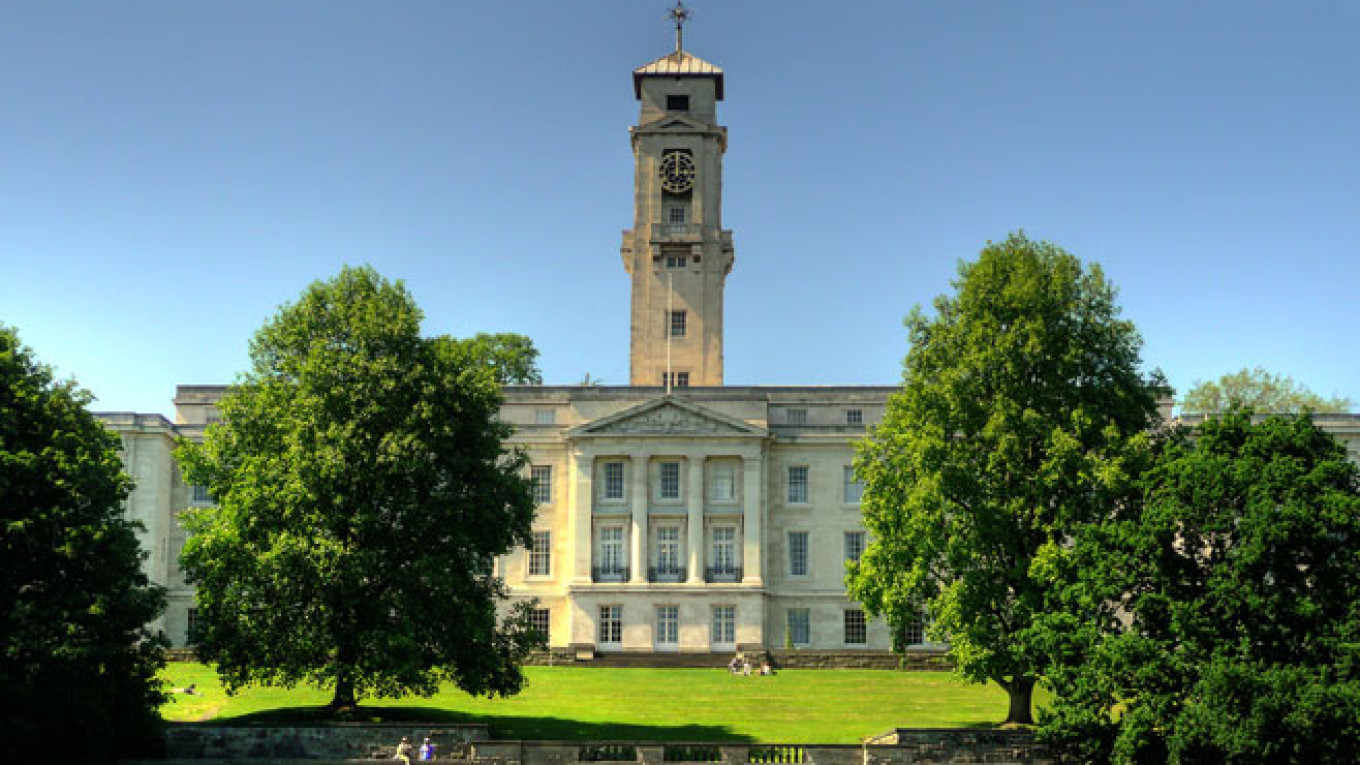A British doctoral student who was reportedly conducting research about the Soviet revolution in Russian state archives is returning home amid claims by a popular tabloid that she had been seeking out ways to incite a revolution in Russia.
Laura Sumner of the University of Nottingham was ordered by a court in Nizhny Novgorod, Russia's fifth-largest city, to leave the country within 10 days, the LifeNews media agency, which is rumored to have close connections with Russian security agencies, reported Wednesday.
But a day later, Sumner's university told The Moscow Times by e-mail that she was leaving because of a "minor infringement in visa regulations as a result of recent changes to those regulations."
LifeNews, which referred to 25-year-old Sumner as a "foreign spy," said she was in the country on a business visa, instead of an academic one, and had thus violated federal migration law in addition to "illegally gathering information in local archives."
The news agency, one of the most popular in Russia, also said Sumner's supervisor at the university, Sarah Badcock, did work that "pertained to the West's efforts to create conditions in Russia for color revolutions," similar to the ones that overthrew ruling regimes in several post-Soviet states, including Ukraine in 2004.
Badcock's profile on the University of Nottingham's website says she is an associate professor whose work focuses on Russia in the late imperial and revolutionary periods.
Russian news site Vremya Novostei reported on March 20 that two Americans in the same city where Sumner was studying had been detained amid claims of espionage connected with their work at NGOs.
Last week President Vladimir Putin's senior advisory council on national defense issued a public statement warning that the United States might be attempting to incite a revolution in Russia.
Earlier this month another student from the University of Nottingham said police and immigration officials pulled her out of an archive in the northern Russian city of Arkhangelsk and forced her to pay a fine, as she did not have a proper visa, Radio Free Europe/Radio Liberty reported.
University of Nottingham spokeswoman Lindsay Brooke declined to comment about the media reports about Sumner, and said she and her colleagues are "pleased that Laura is safe and look forward to welcoming her back to Nottingham to continue her Ph.D. studies."
Brooke added that the school is "liaising with appropriate authorities to seek further clarity surrounding the visa regulations and will issue wider advice as appropriate to students and staff traveling to Russia."
Amid the Ukraine crisis, relations between Russia and the West have sunk to their lowest point since the Cold War.
Correction: This article previously mis-cited LifeNews as saying Badcock ordered students to research methods for the creation of a color revolution in Russia. The LifeNews report said that Badcock had sent students to do research work in Russian archives, and that her work "pertained to the West's efforts to create conditions in Russia for color revolutions."
A Message from The Moscow Times:
Dear readers,
We are facing unprecedented challenges. Russia's Prosecutor General's Office has designated The Moscow Times as an "undesirable" organization, criminalizing our work and putting our staff at risk of prosecution. This follows our earlier unjust labeling as a "foreign agent."
These actions are direct attempts to silence independent journalism in Russia. The authorities claim our work "discredits the decisions of the Russian leadership." We see things differently: we strive to provide accurate, unbiased reporting on Russia.
We, the journalists of The Moscow Times, refuse to be silenced. But to continue our work, we need your help.
Your support, no matter how small, makes a world of difference. If you can, please support us monthly starting from just $2. It's quick to set up, and every contribution makes a significant impact.
By supporting The Moscow Times, you're defending open, independent journalism in the face of repression. Thank you for standing with us.
Remind me later.


